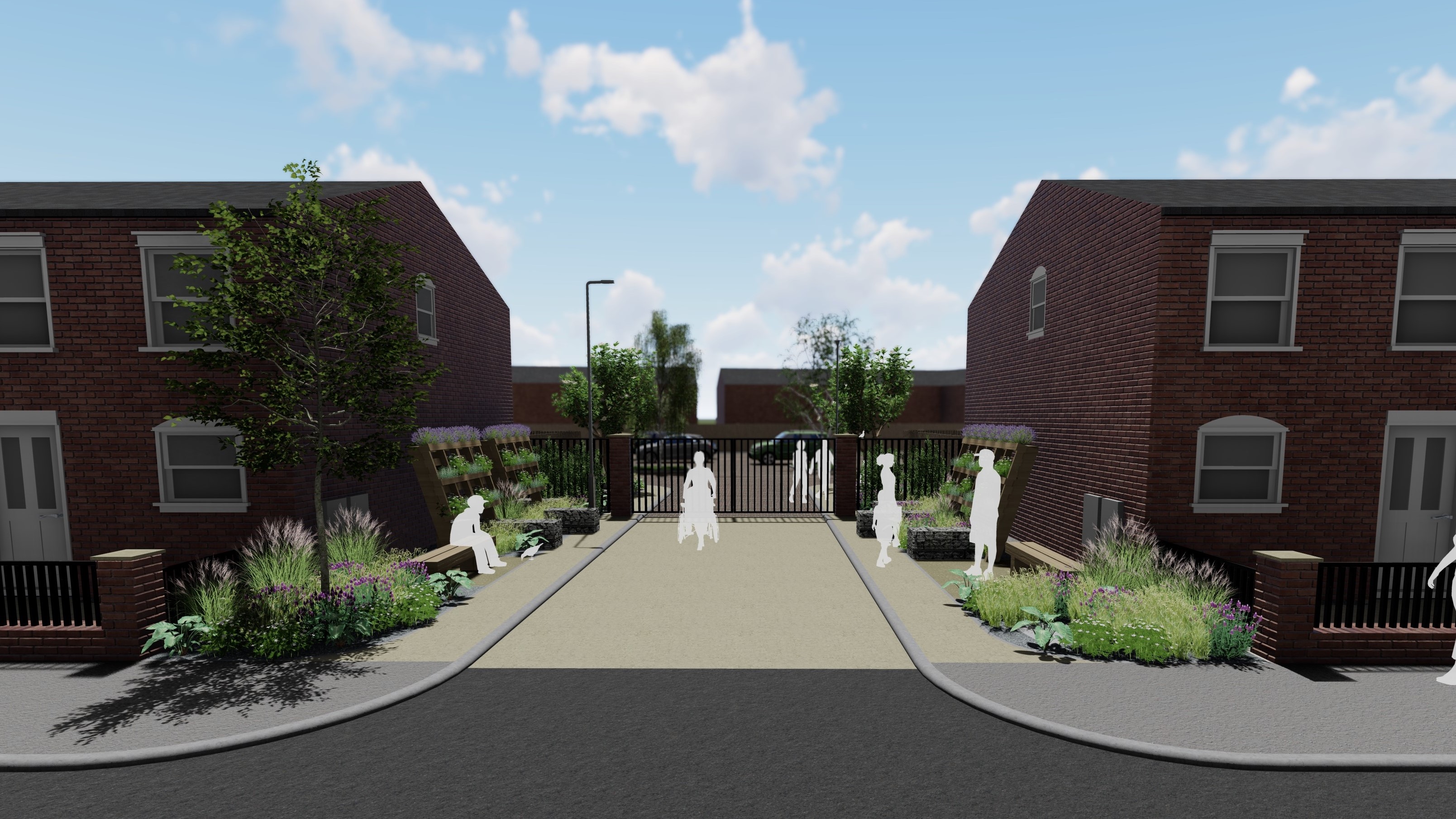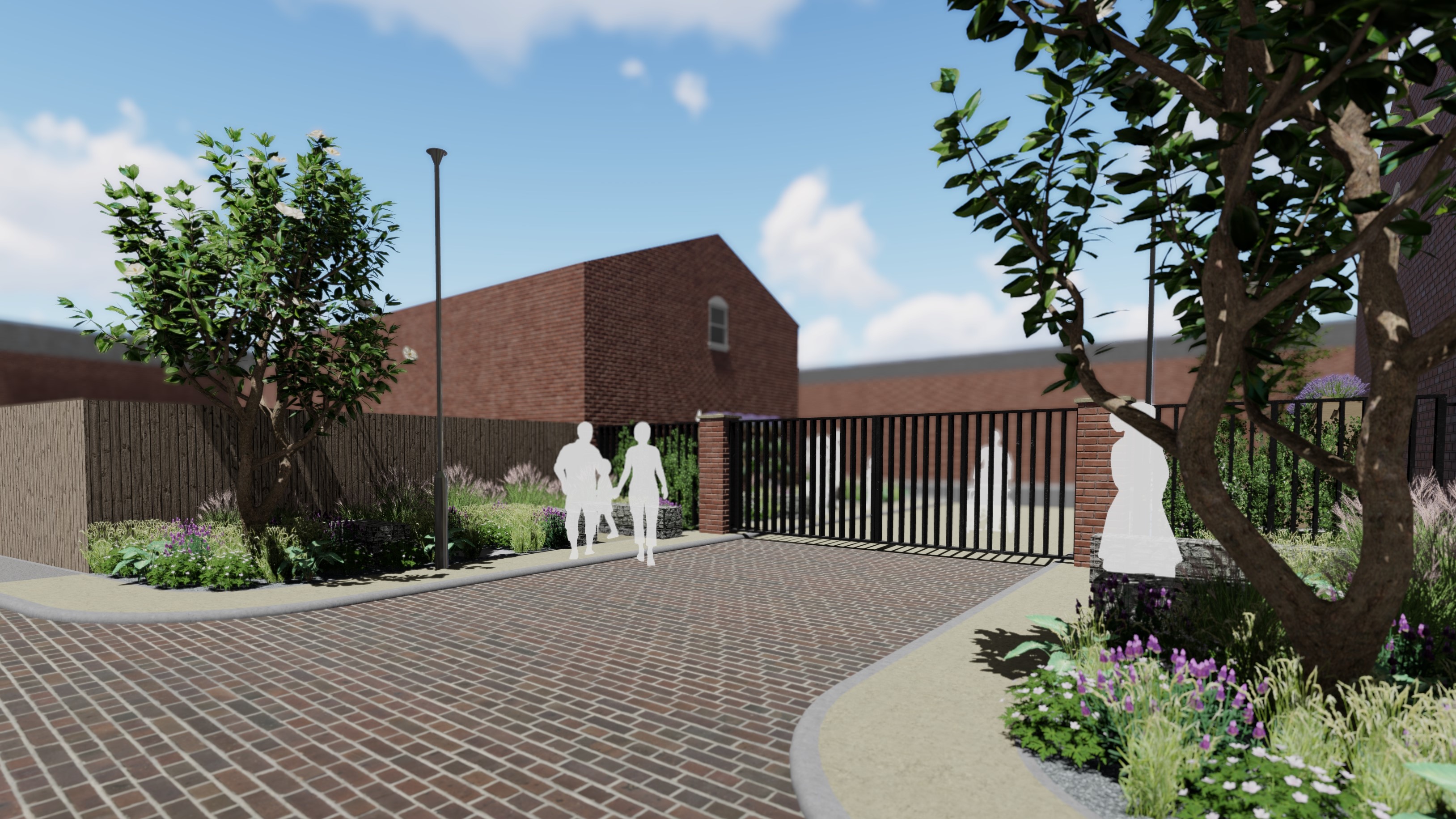Master of Landscape Architecture (MLA) students and tutors are helping to create a communal green space to transform an area of redundant land at Heron Street in Hulme.
Tutors are currently helping to finalise the design, working on the project in collaboration with Manchester School of Architecture and Land Use Consultants’ (LUC) Manchester office, in conjunction with Manchester City Council (MCC) and representatives from Heron Street.
Post COVID-19, it is envisaged that this design will allow for social distancing while helping to balance build development with green space, to improve health and wellbeing, as well as increasing biodiversity and energising local communities.
The project originally began with students from MLA creating aspirational designs for the space, indicating how the entirety of Heron Street could be transformed into a shared space for play and socialising. Through the introduction of rain gardens, green walls, traffic calming measures, sustainable bin stores and functional planting, it was envisaged that this would provide a new identity to the street.

These aspirational urban designs were implemented as a temporary ‘Living Exhibition’ in 2019, which brought these ideas to life. By eliminating cars, adding a framework of gabion walls and planting trees and shrubs, the streetscape was instantly transformed. This gave local residents the opportunity to experience the potential of the transformation and how it might feel to live in a non-car dominated, safe, green street.
This project is an exemplar of the cooperation that can be achieved between students, university tutors, community representatives, commercial suppliers and professional practice.
This design makes a small but significant change to the unused fragment of land close to Manchester city centre, demonstrating how green infrastructure can be introduced into the urban environment in an achievable and cost-effective way.
Ian Fisher, Senior Lecturer in Landscape Architecture at Manchester School of Architecture, Manchester Metropolitan University said: “This project is an exemplar of the cooperation that can be achieved between students, university tutors, community representatives, commercial suppliers and professional practice. What makes this scheme particularly relevant in a COVID-19 world is that it can provide local green space as a flexible stage for social interaction as well as contributing to city wide climate measures.”
LUC are now in the process of completing the working drawings and it is hoped that post COVID-19 these designs can be developed further. This would give students the opportunity to become involved in the implementation of the design and learn construction techniques and project management skills as well as the importance of community engagement.


